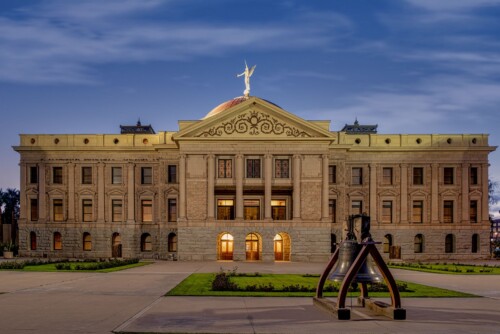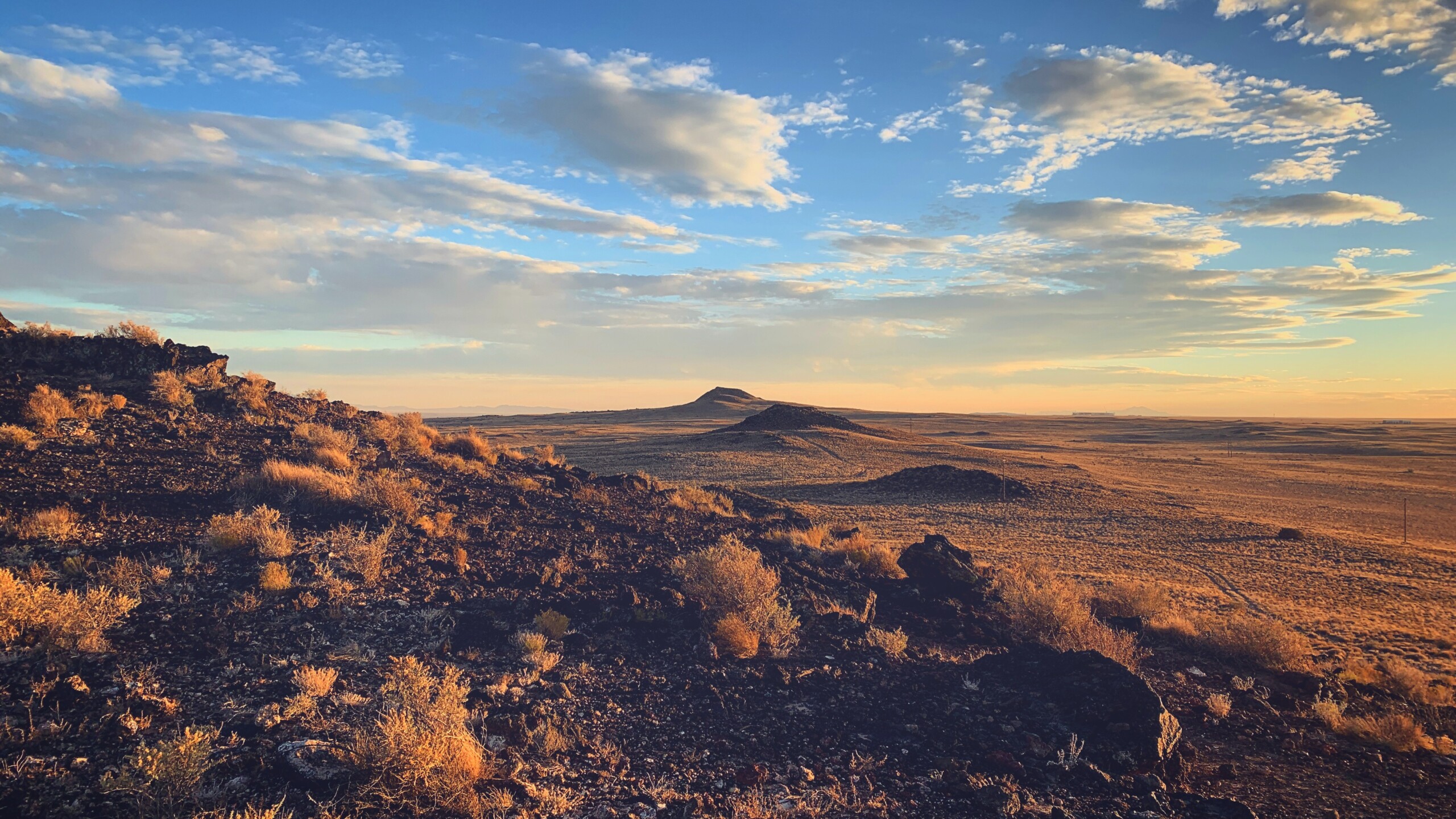Annual Report 2021
Utilities are essential to everyday life. They provide homes and businesses with power, clean drinking water, and even basic communications. One decision from a utility can impact the lives of millions of people. That’s why they are regulated and why they present an important opportunity to quickly advance real solutions to climate change.
At WRA, we believe it’s vital to build relationships with a broad group of allies to ensure the laws and rules we work hard to pass are implemented. While state regulatory commissions are important in adopting regulations to hold utilities accountable, utilities themselves can go above and beyond baseline regulations and affect change in real time. Collaborating with utilities has long been part of WRA’s success in closing power plants earlier than anticipated and advancing nation-leading energy commitments.

A Decade of Ardent Advocacy with Tri-State Pays Off
Tri-State is a Colorado-based power provider that serves 43 rural electric cooperatives in Colorado, Nebraska, New Mexico, and Wyoming. For decades, the rural generation and transmission co-op skirted state regulatory commissions and relied on antiquated generation facilities, providing its members with dirty energy while racking up billions of dollars in debt from investments in more of those same outdated technologies. But WRA didn’t count Tri-State out. Since 2009, WRA has worked with the utility to find better opportunities for its customers and, of course, the climate.
In 2019, the tide began to turn as Colorado lawmakers, in part at WRA’s urging, stepped up to hold Tri-State accountable to the same standards and regulations as other state utilities, requiring its electric resource plan to be reviewed and approved by the state commission. Then, in 2021, after more than a decade of pushing the large electric utility to do better, we achieved what only months before had seemed impossible. The utility announced its plans to substantially reduce its greenhouse gas emissions, increase energy efficiency, and potentially retire the large polluting coal unit Craig 3 earlier than originally planned.
Tri-State primarily serves small rural communities. Residents in rural towns deserve lower electricity bills and cleaner power, and WRA’s persistent work now puts them on even footing with customers served by Colorado’s major utilities, while marking another major milestone in transition to 100% clean energy for Colorado.
Multistate Agreements Push PacifiCorp to Reconsider Coal
PacifiCorp is one of our region’s largest utilities, serving customers in six states (California, Idaho, Oregon, Utah, Washington, and Wyoming). Unlike other utilities in our region, PacifiCorp serves its customers through a single system of interconnected generation and transmission, meaning any plans for its territory are regulated by six state commissions that answer to six legislative bodies and six executive branches. When one state decides to set a goal to achieve clean energy by a certain date, it doesn’t necessarily mean the others must follow, and PacifiCorp is responsible for answering to them all. When it comes to reducing carbon emissions in Utah and Wyoming, PacifiCorp’s energy generation choices have a huge impact on the region, and their voluntary participation is paramount in the transition to 100% clean energy.
For more than 15 years, WRA has pushed PacifiCorp to appropriately value the economic and climate benefits of clean energy and the risks of fossil fuels. After years of multistate agreement meetings, commission testimony, and interstate relationship building, in 2021 we saw a major breakthrough. PacifiCorp announced plans to achieve a 74% reduction in greenhouse gas emissions by 2030 (relative to 2005) and a 98% reduction in greenhouse gas emissions by 2050. PacifiCorp’s forecast projects roughly a 67% reduction in emissions between 2016 and 2030. And while we believe this announcement is a major milestone, WRA will continue to keep a close eye on PacifiCorp and advocate for safeguards to ensure the utility achieves or surpasses its emissions forecast.

Cross Collaboration Creates Opportunity to Conserve Water and Reduce Carbon Emissions
Sometimes good environmental policies appear to happen from strokes of good luck — having the right partners in the right place at the right time with the right message. But often what can seem like an easy victory on the surface is actually the product of years of building trust on the ground with impacted communities and relationships with the entities best positioned to make change. When Tri-State closed the Nucla Power Plant in Naturita in 2021, the community was concerned about what it would mean for the economy, while Tri-State had to worry about abandoning the water right used to power the plant and the impact to local river health.
WRA’s clean energy experts had been working with Tri-State and advocating at the Colorado Public Utility Commission to reduce coal on the system, while our river health experts had been working with Naturita and our longtime nonprofit partners to find ways to improve local river health to benefit the community. We were able to identify the best solution for everyone involved by confirming that coal plant water rights are a public utility asset and that any transfer of those rights must be in the public interest.
WRA experts are working toward transferring the Nucla Power Plant’s water rights to uses that benefit the public interest, including the natural environment. The move improves river health, provides future economic opportunity for Naturita, and fast-tracks Tri-State’s coal plant closure so we all reap the benefits of fewer greenhouse gas emissions in our region.
Securing Big Investments in Electric Vehicles and Equity from Xcel
WRA has worked with Xcel Energy for decades to push the electric utility to become a national leader in the transition to clean energy. In 2019, we realized that while the power sector in Colorado was on a solid path to achieving 100% clean energy by 2050, the transportation industry was rapidly falling behind. After three decades of working with utilities, WRA experts were perfectly positioned to drive the industry to electrify transportation — and fast. WRA advocated that well-designed utility programs to expand electric vehicle (EV) charging infrastructure could speed EV adoption, reduce harmful emissions, and lower electric bills for all utility customers.
In 2021, we saw our first real victory by securing one of the most ambitious commission-approved transportation electrification plans in the nation: Xcel announced an investment of more than $110 million to support EV adoption. WRA was instrumental in researching, analyzing, and negotiating key elements of the plan and testified at the Public Utility Commission to get it across the finish line. As a result, Xcel will deploy approximately 20,000 EV charging stations at residential, commercial, and public sites across Colorado and help get 450,000 EVs on the road by 2030 – almost 50% of what’s needed to meet Governor Jared Polis’s goal to get 940,000 EVs on the road by 2030. The plan requires an investment of at least $20 million to promote EV adoption in low-income households and communities most heavily impacted by air pollution. This WRA-supported plan is the first full-scale EV infrastructure program approved in our region and sets the gold standard for other utilities across the country.









